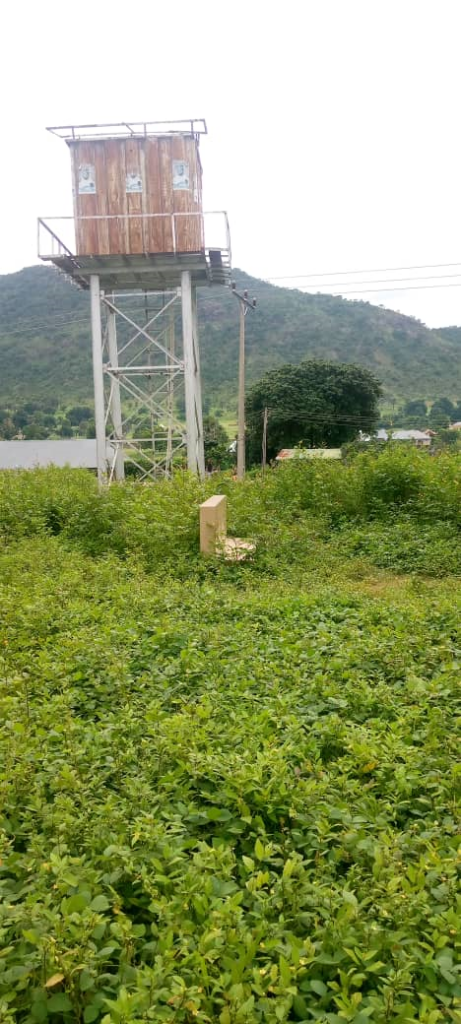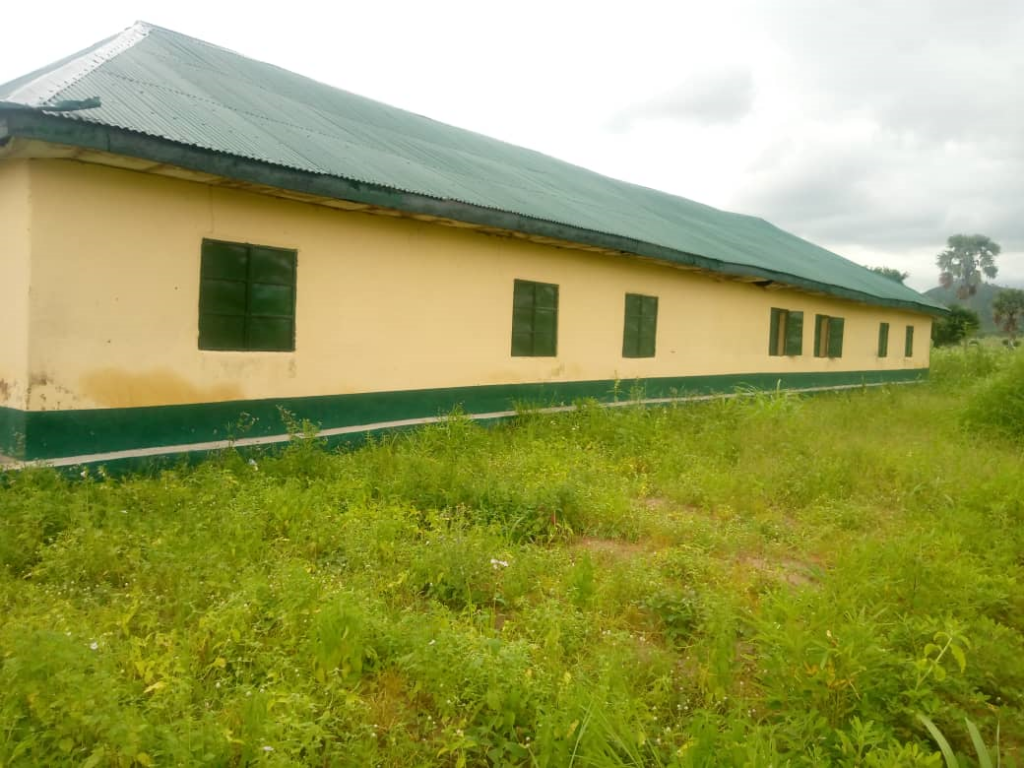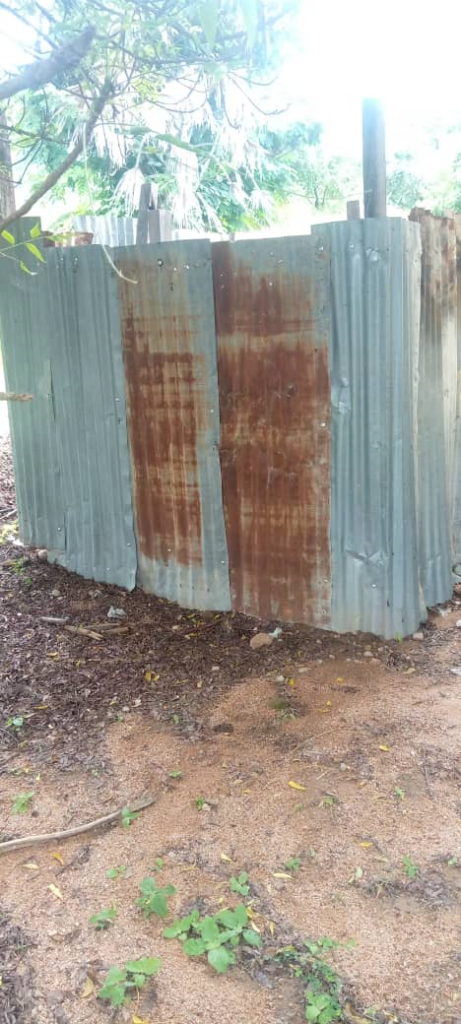Inside Taraba Schools Where Lack of Toilets, Clean Water is Exposing Students, Teachers to Health Risks
223 Views
24 Nov 24, 2023
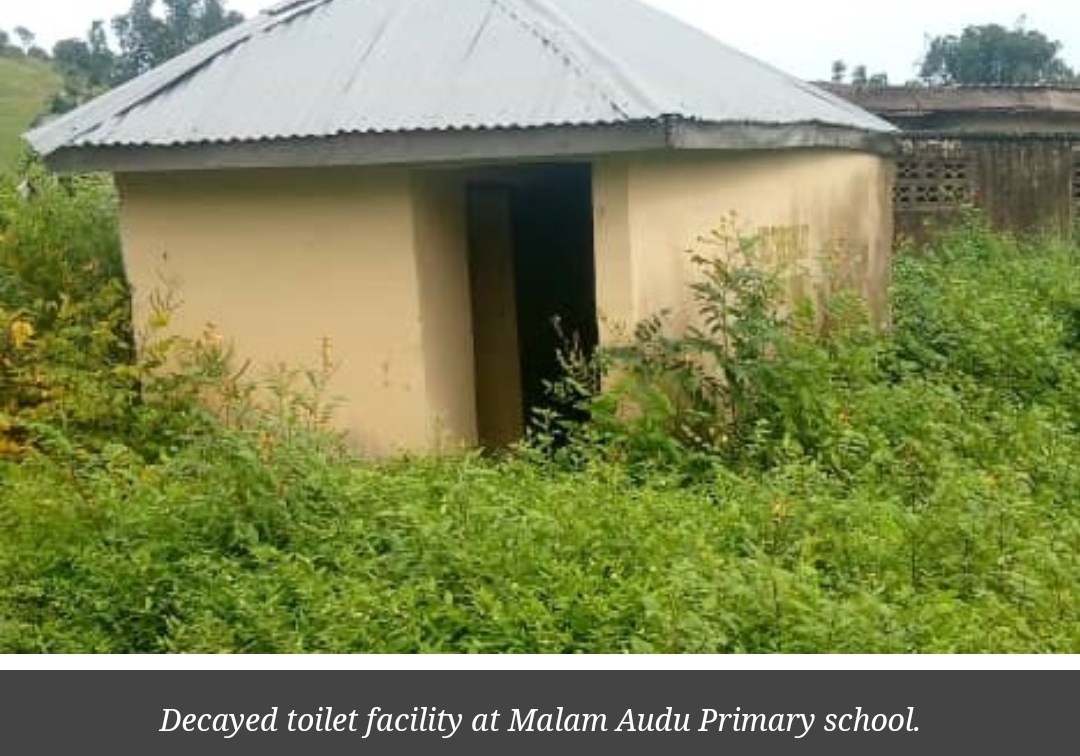
In Taraba State, a mind-blowing crisis unfolds within the walls of schools like Mallam Audu Primary School, where pupils like Salma Yusuf are compelled to embark on an unexpected journey home during school hours. This is due to the alarming absence of restroom facilities – a dilemma that forces students to miss valuable class time.
The struggle extends beyond Mallam Audu; across various schools in the state, both students and teachers grapple with challenges that hinder the sanctity of the learning environment. Private spaces for nature’s call are luxury, clean water is a scarce commodity, and open defecation becomes an unfortunate reality for many, reports Aminu Adamu.
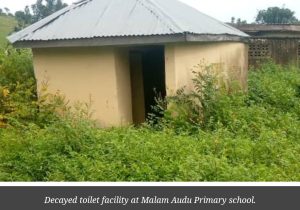
In Taraba State, the sanctity of the learning environment across many schools is threatened, mainly due to water scarcity and poor access to functional toilet facilities.
Like many of her peers, Salma Yusuf, a primary six pupil at Mallam Audu Primary School in Jalingo, is compelled to go home anytime she feels pressed to relieve herself. Leaving school might not have been an option, but she had no alternative because her school lacked toilet facilities.
“I sometimes miss classes because, by the time I return from answering nature’s call, my teacher has moved on,” she lamented.
In the case of Zaliha Kabir, the lack of private space for nature’s call deters her from attending school regularly. She said, “Knowing there are no toilets and other essential facilities in school, it feels incomplete. I often contemplate not attending school due to these challenges.”
Despite FG, UNICEF’s Open Defecation-free Certification, Bauchi Communities Still Battle Pervasive Human FeAces, Killer Diseases
Mary Samuel, a student at the same school, added another layer. As for her, the major concern has been the lack of toilets, the inaccessibility of clean water complicates their struggles. “Since we don’t have water in our school, I must bring a bottle from home. So when I’m pressed, I venture into the nearby bushes to ease myself.”
Aid to Robbery
Aside from the pupils, some teachers also confirmed to The falasa how the lack of toilet facilities has been challenging for both teachers and pupils. A teacher, Yohanna Seevo, said both the pupils and staff were used to enter peoples’ homes to use their toilets, but not anymore.
The once sympathetic neighbours have put an end to the warm gesture. They no longer allowed both the pupils and teachers not because they were mean, but it has become a trend that strangers allegedly harm the people under the guise of seeking help to relieve themselves, “so out of fear they no longer welcome us,” said Yohanna.
Another female teacher, identified as Mrs. Lami, said both students and staff had to resort to open defecation. This practice hampers the learning process and poses significant health risks. “The overgrown state of the school puts us all in danger. It is particularly distressing for female teachers and pupils.”
The School headmaster, Jafar Saleh, narrated that, due to multiple challenges in the school, many children had been hit by vehicles while trying to cross roads in their haste to ease themselves elsewhere.
“We also lack a water supply in the school. Some miscreants stole parts of our only borehole, and since then, we have not been getting water either.”
Saleh observed that the lack of toilet facilities and issues like water supply led to an increase in the dropout rates of pupils, particularly for female students.
He added, “It’s not just the lack of toilets; water supply also poses a significant challenge. Some miscreants even resorted to stealing parts of the only borehole in the school, depriving the school of its most essential resource.”
Field findings clearly showed the Mallam Audu Primary School situation is not peculiar. It represents a systemic problem plaguing many schools in Taraba State.
In Santiwa Primary School, Lankaviri – on the outskirts of Jalingo, the situation mirrors that of Mallam Audu Primary School. Pupils and teachers stay several hours in school without access to a proper toilet.
According to the head teacher, Mallam Ahmadu Muhammad, the lack of toilets in the school is affecting the pupils in no small way.
“It is almost impossible for us to monitor the movement of the pupils during break time or anytime they want to ease themselves. Some go to houses in the neighbourhood, and others enter people’s farms to defecate, which farmers complain bitterly about.
Poor, Dilapidated Infrastructure: Inside Bauchi School Where Girls Miss Classes During Menstruation
Muhammad’s concern extends to the absence of a clean water supply, making students take risky journeys to fetch water from a distant stream.
“They have to walk a distance to fetch water whenever they are in need due to lack of water supply in the school. I am more concerned with this because the school is situated along a stream, and the road there is bad. It is riskier for the pupils. That is how we lost our former headmistress,” he said.
For Yala Luka, a male pupil, each school day starts with a heavy heart, knowing that the need to use the toilet might force him to return home or face the risks of using the bush.
Gladys Abba, a primary five student, echoed these same sentiments, fearful of reptiles that might lurk in the bushy area behind the school. “Most times, I am scared of getting bitten by a snake as I ease myself in the bush.”
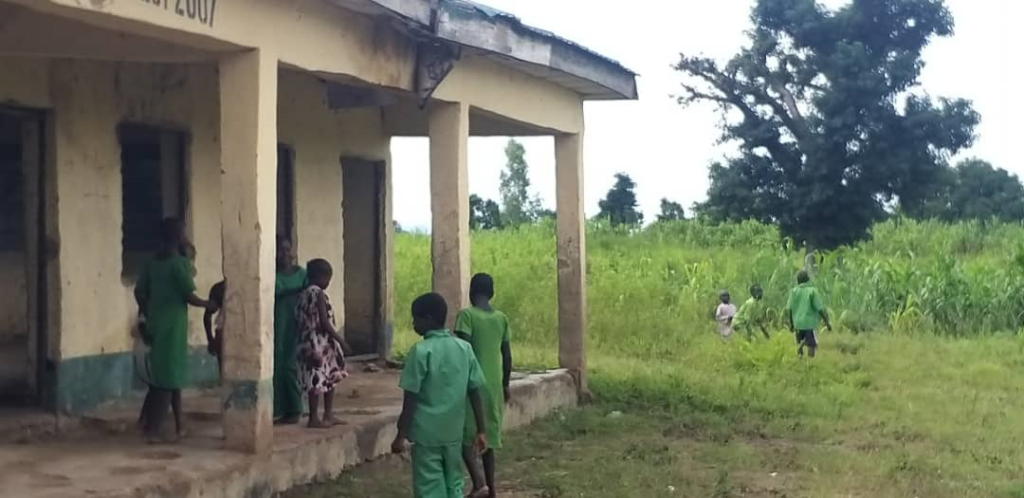
Amos Tuwa, a concerned father, revealed that his child sometimes refuses to return to school after coming home to ease himself, adding that “it takes disciplinary action to force him back.”
In his reaction, the ward head of Lankaviri lamented that the smell oozing out of the atmosphere, especially at night, as a result of open defecation, is unbearable.
The head teacher, Muhammed, appealed to the relevant authorities “to look into their plights and make provisions for toilets and water for Santiwa Primary School.”
The secondary school struggle
The situation at Government Day Secondary School (GDSS) Lankaviri paints a similar picture, with students and staff grappling with the consequences of inadequate toilet facilities.
Female students, in particular, endure discomfort, especially during their monthly menstrual cycles. They must use open spaces for relief, often at great personal risk.
A Senior Secondary School (SSS) 3 student, Goodness Babban, disclosed that it has always been uncomfortable for her to use the bush, especially when menstruating.
“It is more saddening when I want to change my sanitary pad. I have to walk far away into the bush to change despite my vulnerability and fear of the unknown,” she said.
Another SSS 3 student, Sa’ad Ayuba, said he eases himself before leaving home because he fears entering the bush. “I hold myself without defecation till I close from school. I can’t go to the bush because snakes are bound to wander. If toilets can be constructed in this school, I would be more than happy.”
A teacher in the school, Mrs. Zulpha Jacob Wariri, lamented the lack of toilets is seriously affecting her students, especially the females, who are vulnerable to infections.
“Female students have a particular challenge; they enter houses in the neighbourhood which exposes them to infections,” she said. She added that it is not just the students and teachers who suffer; even the local farmers have their share of woes. Some students’ defecating in the fields causes crop damage, adding another layer of complexity to the problem.
Another teacher, Actor Banvo Augustine, said, “Last term, some of our students nearly got bitten by a snake, which is not the first occurrence. Parents, too, share our concerns, but what can we do?”
The school principal, Sunusi Abubakar, described as disheartening that such a school has no toilet facility, which is necessary in a public environment.
“We had to provide a single pit latrine used by staff and students. Although the use of pit toilets can be very risky for their health, especially due to the large population, females are prone to infections.”
Teachers, Pupils In Gombe Schools Suffer As Classroom, Toilet Projects Remain A Mirage
It was the same reality in other public schools in Taraba, such as Gongo Mai Hujja Primary School, Wuro Sambe Primary School, Jauro Lado Primary School, Government Day Secondary School Nukkai, Government Day Secondary School Kufai, which lack of toilets continued to expose students and teachers to various health dangers.
Lack of proper toilet facilities is not just an inconvenience but a serious health risk, Dr. Alheri Bulus of the Federal Medical Centre in Jalingo explained. He said students who resort to open defecation without access to clean water and proper hand-washing facilities are at risk of contracting various diseases.
The diseases he mentioned include cholera, dysentery, conjunctivitis, hepatitis A, and poliomyelitis, among others. If left unaddressed, these health issues can escalate to the point of mortality.
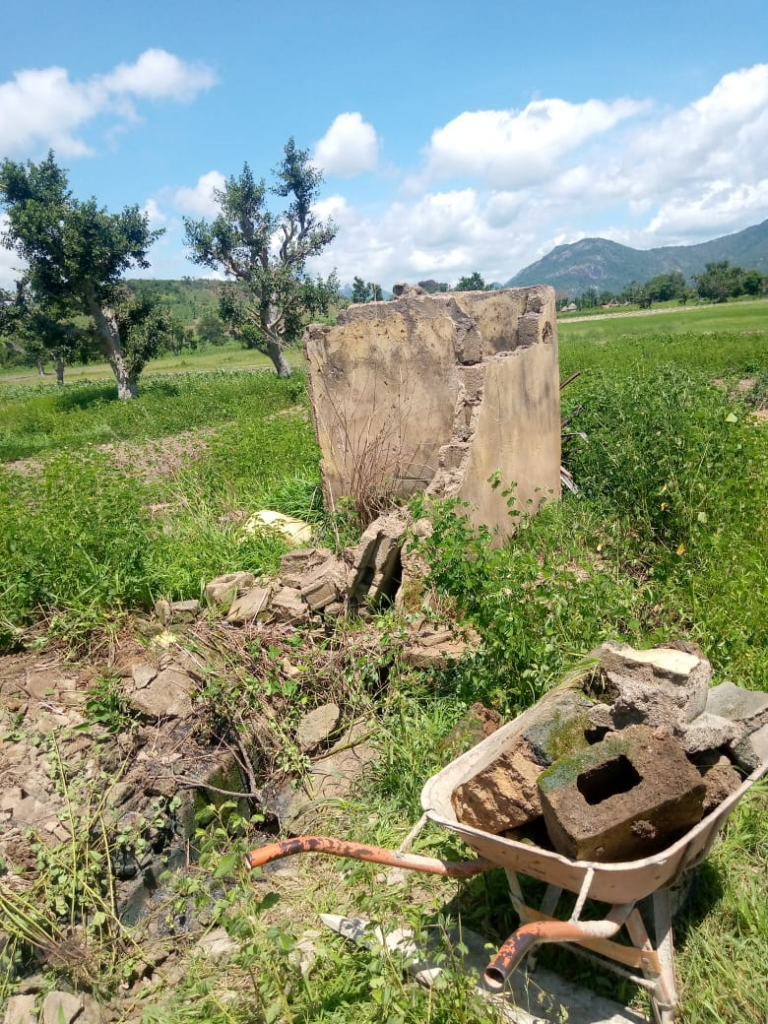
“This can affect the community’s water source and expose its habitats to diseases such as diarrhea. While holding in urine affects one’s kidney, it is especially dangerous for the female to hold in urine, especially when menstruating, as that can lead to a urinary tract infection that, if not treated, can cause the blockage of the fallopian tube, resulting in secondary infertility,” he said.
Dr. Bulus emphasised the critical role that sanitation and hygiene play in disease prevention. Open defecation contaminates the environment and water sources, undermining essential aspects of public health.
International organisations such as the United Nations Children Fund (UNICEF), World Health Organisation (WHO), and the World Bank have consistently affirmed the grave consequences of open defecation. These consequences ripple through health, economic, and social dimensions, impacting the entire fabric of society.
In Nigeria, according to UNICEF, more than 100,000 children die annually due to diseases associated with open defecation. Thus, the absence of toilets in schools exposes not just the lives of the pupils and teachers but also community members where the schools are located, as many pupils urinate and defecate in the open.
A report by Save the Children in Nigeria in 2022 corroborated these findings, asserting that children’s deaths are directly related to diseases resulting from open defecation. Furthermore, international bodies such as WASH, UNESCO, and UNICEF confirm a noticeable improvement in girls’ school attendance where proper toilet facilities are available.
Inside Kazurawa’s Deplorable Health Facility Amid Multi-billion Naira Funding
Experts noted that the lack of toilets profoundly impacts girls’ education. Girls, in particular, require safe and secure spaces for personal needs. The absence of adequate facilities pushes them to stay away from school, often due to embarrassment or concerns about personal safety.
The Initiative for Climate Change and Education, an NGO based in Jalingo, observed that there are many cases of ailments linked to open defecation, such as cholera, in the state.
According to the founder, Folorunsho Femi, the lack of clean and inadequate toilets is a serious issue, especially in public schools where most schools lack clean water and handwashing facilities.
She said, “We go around schools to educate students on the importance of a clean environment and hygiene, and in one of the schools I visited some time ago, many students were infected with cholera due to open defecation and poor hygiene in the school.”
He ascribed the practice of open defecation and deficiency of hygiene in public schools to a combination of the failure of government and the absence of maintenance culture from some schools’ management, “as some schools lock up toilets and students end up defecating outside the toilet,” he alleged.
Mr. Femi counseled relevant education authorities in the State “to ensure students have access to toilets by providing the necessary and adequate toilet facilities, especially for the girl child in public schools.”
Although some school’s management declined to comment on the challenges and how they affect learning for fear of persecution, officials from the Taraba State Universal Basic Education Board (TSUBEB) acknowledged the issue of inadequate toilet and water supply facilities in many schools in the state.
According to Mr. Uria Yamusa, the Director of Planning at TSUBEB, the board has taken steps to construct 480 toilet facilities in 2,500 primary schools across the state, subject to available funds. He acknowledged that some schools’ lack of a maintenance culture has deteriorated existing facilities.
He said, “When we reconstruct schools, we ensure we build toilets. It’s only when we make rehabilitations that we don’t build toilets. We put it up (demand for toilet construction) in our presentation for counterpart funding from UBE. 2500 schools in Taraba, and we can construct 480 toilets for some schools; therefore, it’s a work in progress; when there are adequate funds, we will build more toilets.”
He, however, lamented that the lack of maintenance culture in the School-Based Management Communities (SBMs), which consist of the schools and communities, led to the dilapidation of the existing toilets in some schools.
Umar Babangida, a quality assurance officer at TSUBEB, also acknowledged that the learner-toilet-ratio policy for school construction has not always been followed. He attributes the lack of toilets to the shortcomings of those awarded contracts for such projects.
In a terse response, TSUBEB Acting Chairperson, Mrs. Rabi Sunday, told Falasa that more than 2,000 schools have no toilet facilities in the state.
“Regarding the lack of toilets, the previous administration (of Taraba State) has already identified the gap. We will include all the schools that do not have toilets in our Action Plan for the 2023 project. There are 2,072 schools, so we cannot work on all schools simultaneously,” the TSUBEB chair said.
This report is produced with support from Civic Media Lab (CML).
